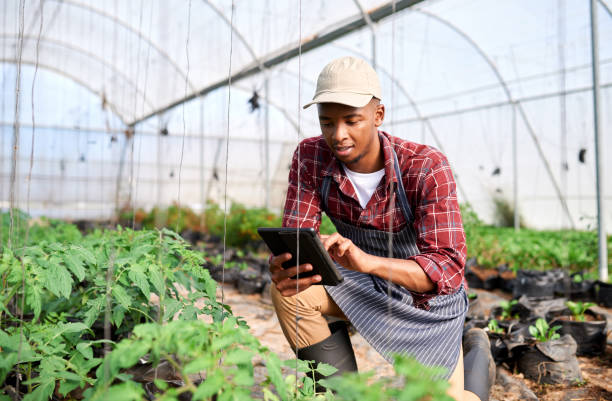Published: January 22, 2024 4.19pm SAST
Associate Professor, Agri-Food Trade and Policy, University of Guelph
Ghana, like many other developing nations, relies heavily on imports of food and consumer goods to feed its population. For instance, Ghana imports 55% of the rice that is consumed locally. The country’s import dependence is primarily a consequence of the production of low-value primary products without substantial value addition.
To forestall over-dependence on foreign goods, the government has proposed a trade restrictive policy via a legislative instrument on 22 major items. It has justified the policy on the grounds that it wants to reduce Ghana’s dependence on foreign goods by making locally produced goods more attractive from a price perspective. In turn, the idea is that this will drive up domestic production.
The list of items includes essential food products such as rice, offal, poultry, cooking oil, fruit juices, noodles and pasta, fish, sugar and canned tomatoes. All are commonly consumed in most Ghanaian households.
But imposing constraints on these food items has the potential to escalate food prices, as set out in my recent paper, prompting concerns about potential threats to food security. Restricting imports without ensuring high-quality and competitive domestic products will not lead to consumer preference for locally made goods. What Ghana’s industries need are fewer production constraints and more incentives to compete domestically.
Opposition to the instrument
Opposition to the proposal emerged from various quarters, including civil society organisations, trade associations and the minority in parliament.
Opponents of the proposed policy contended that its restrictive nature would lead to severe economic and food security repercussions for Ghana. They argued that domestic producers might struggle to meet local demand for the specific items the government aims to restrict. For example, 90% of Ghana’s total poultry consumption relies on imports.
The government consequently suspended the proposed mechanism in December 2023 for broader consultation.
The reasons
The ministry wanted the restriction for two main reasons.
First, to curb the depreciation of the Ghanaian cedi. A surge in imports of the products in question increased the demand for US dollars, putting pressure on the local currency. In 2022, Ghana imported food products and related goods worth an estimated US$2.6 billion.
Second, the aim was to foster industrialisation in Ghana. According to the ministry, import restriction was a strategy to reduce competition for local producers, fostering increased local production and making Ghana less reliant on foreign countries to meet domestic demand.
But there are a number of concerns about the potential impacts of the proposed restrictions. Among them are food security, government revenue, trade distortions, and the cost of doing business.
The likely impact
Food insecurity: Data from the Food and Agriculture Organization shows that there were 21 million severely food-insecure individuals in 2021. Constraints on imports of commonly consumed foods, leading to scarcity and thus an increase in food prices, would reduce food security further.
Producers might benefit from selling at higher prices but consumers would not.
Revenue loss: There is the potential for revenue loss, particularly from customs and import duties. Many developing countries, including Ghana, depend heavily on import duties for government revenue. Recent statistics from the World Bank’s World Development Indicators for 2020 indicate that customs and import duties accounted for 12.4% of Ghana’s tax revenue.
Trade rules: Ghana is a member of the World Trade Organization (WTO), which expects countries to align their trade policies with the relevant globally agreed provisions and rules.
The WTO allows a member country to set conditions for importing certain products. This is known as import licensing. But the WTO stipulates that import licensing should not distort and impede trade.
Ghana may face retaliation from other countries if the restrictions harm their interests.
Take import licensing. This is an administrative procedure requiring the submission of an application or other documentation (other than those required for customs purposes) to the relevant administrative body as a prior condition for importation of goods. This is permissible under WTO rules. But challenges arise in its implementation, particularly the allocation of quotas. Successful implementation requires thorough consultation with importers and importing countries.
The initial opposition within Ghana suggests a lack of serious consultation by the government.
Import licensing can introduce rent-seeking activities in a country like Ghana. Establishing a committee to grant licences to importers opens avenues for bribery and corruption. Transparency International and the World Bank rank Ghana higher in the corruption index than other developing countries.
For instance, the World Bank Enterprise Survey indicates a high percentage of firms in Ghana are expected to pay bribes to obtain licences, government contracts and business permits. When businesses resort to bribery, it leads to inefficiency and a higher cost of conducting business.
The answers
Restraining imports without alternative domestic production and supply mechanisms is economically unsound. Policies that drive industrialisation and position Ghana as a net exporter are needed.
That’s not happening. The recently presented 2024 budget revealed a negative 2.2% growth rate for the industrial sector.
To drive industrialisation, the government should focus on reducing production constraints such as inadequate power supply, lack of capital, and high cost of farm inputs, and providing incentives that give Ghanaian producers a competitive advantage in the domestic market. Closing borders to international trade or restricting imports contradicts the objective of promoting industrialisation. It is not a sustainable approach.
SOURCE
The Conversation



